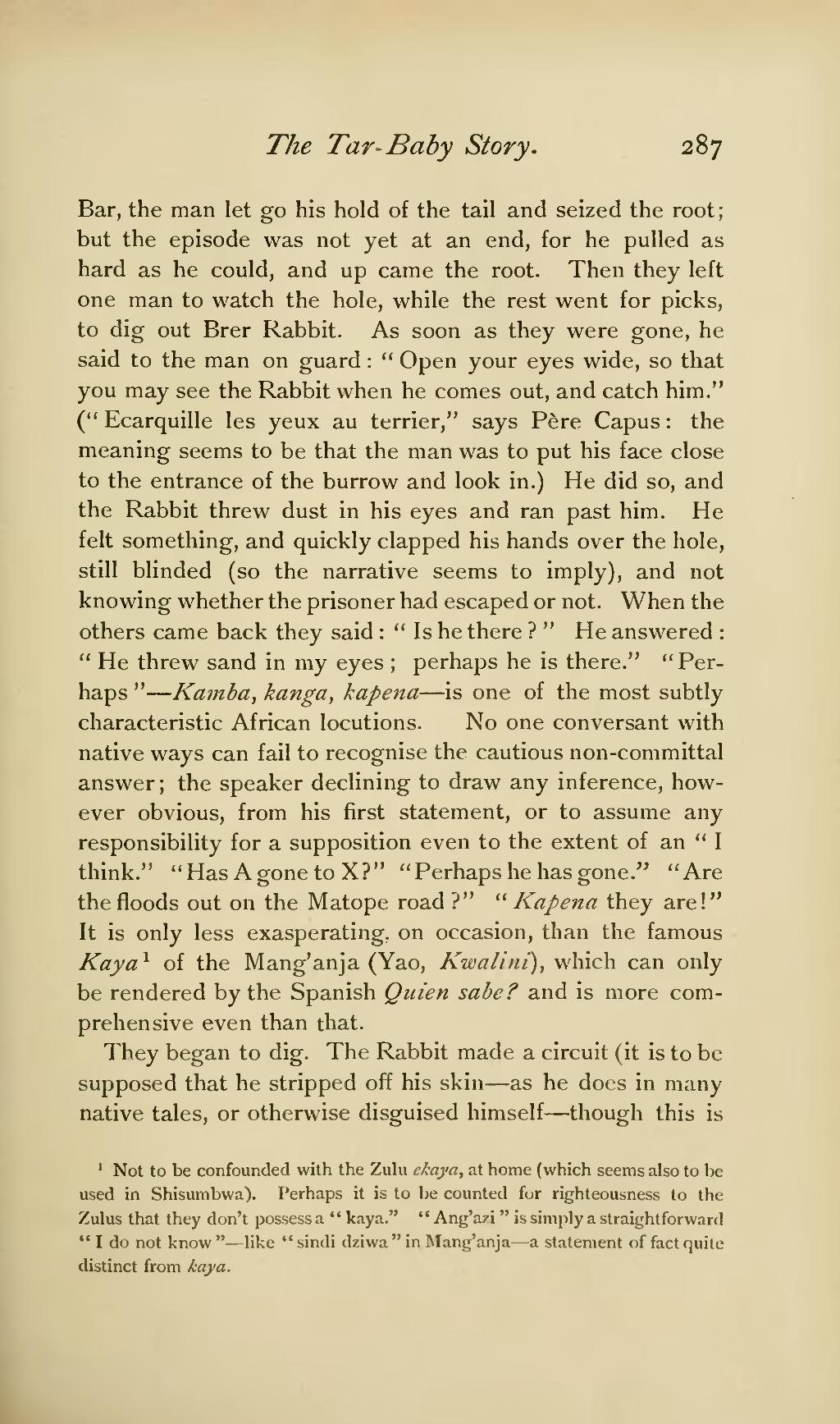Bar, the man let go his hold of the tail and seized the root; but the episode was not yet at an end, for he pulled as hard as he could, and up came the root. Then they left one man to watch the hole, while the rest went for picks, to dig out Brer Rabbit. As soon as they were gone, he said to the man on guard: "Open your eyes wide, so that you may see the Rabbit when he comes out, and catch him." ("Ecarquille les yeux au terrier," says Père Capus: the meaning seems to be that the man was to put his face close to the entrance of the burrow and look in.) He did so, and the Rabbit threw dust in his eyes and ran past him. He felt something, and quickly clapped his hands over the hole, still blinded (so the narrative seems to imply), and not knowing whether the prisoner had escaped or not. When the others came back they said: "Is he there?" He answered: "He threw sand in my eyes; perhaps he is there." "Perhaps"—Kamba, kanga, kapena—is one of the most subtly characteristic African locutions. No one conversant with native ways can fail to recognise the cautious non-committal answer; the speaker declining to draw any inference, however obvious, from his first statement, or to assume any responsibility for a supposition even to the extent of an "I think." "Has A gone to X?" "Perhaps he has gone." "Are the floods out on the Matope road?" "Kapena they are!" It is only less exasperating, on occasion, than the famous Kaya,[1] of the Mang'anja (Yao, Kwalini), which can only be rendered by the Spanish Quien sabe? and is more comprehensive even than that.
They began to dig. The Rabbit made a circuit (it is to be supposed that he stripped off his skin—as he does in many native tales, or otherwise disguised himself—though this is
- ↑ Not to be confounded with the Zulu ekaya, at home (which seems also to be used in Shisumbwa). Perhaps it is to be counted for righteousness to the Zulus that they don't possess a "kaya." "Ang'azi" is simply a straightforward "I do not know "—like "sindi dziwa" in Mang'anja—a statement of fact quite distinct from kaya.
